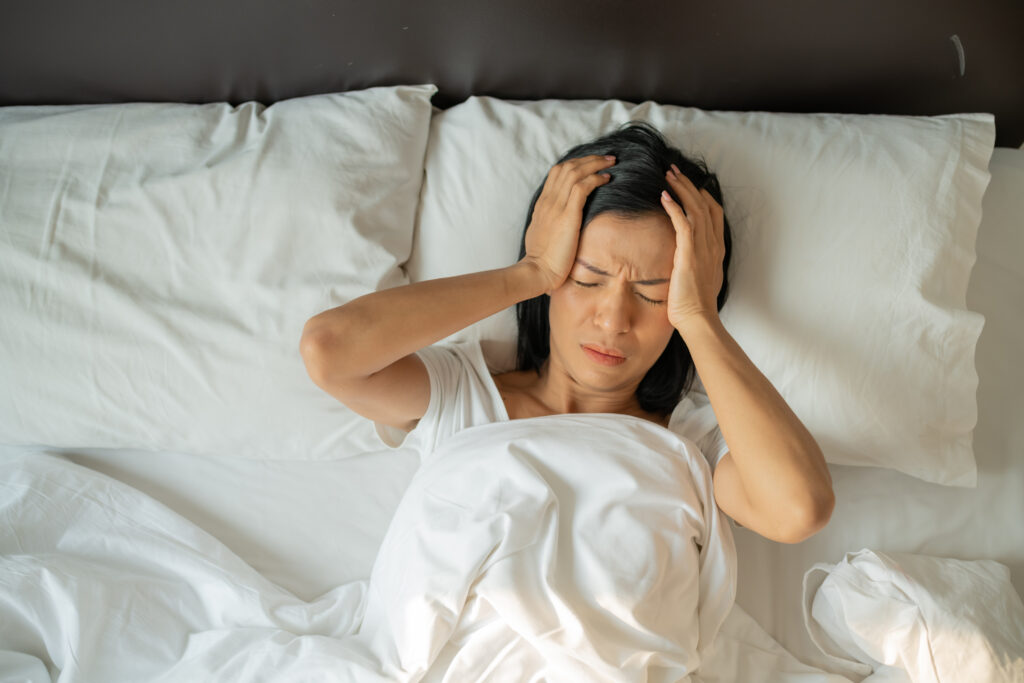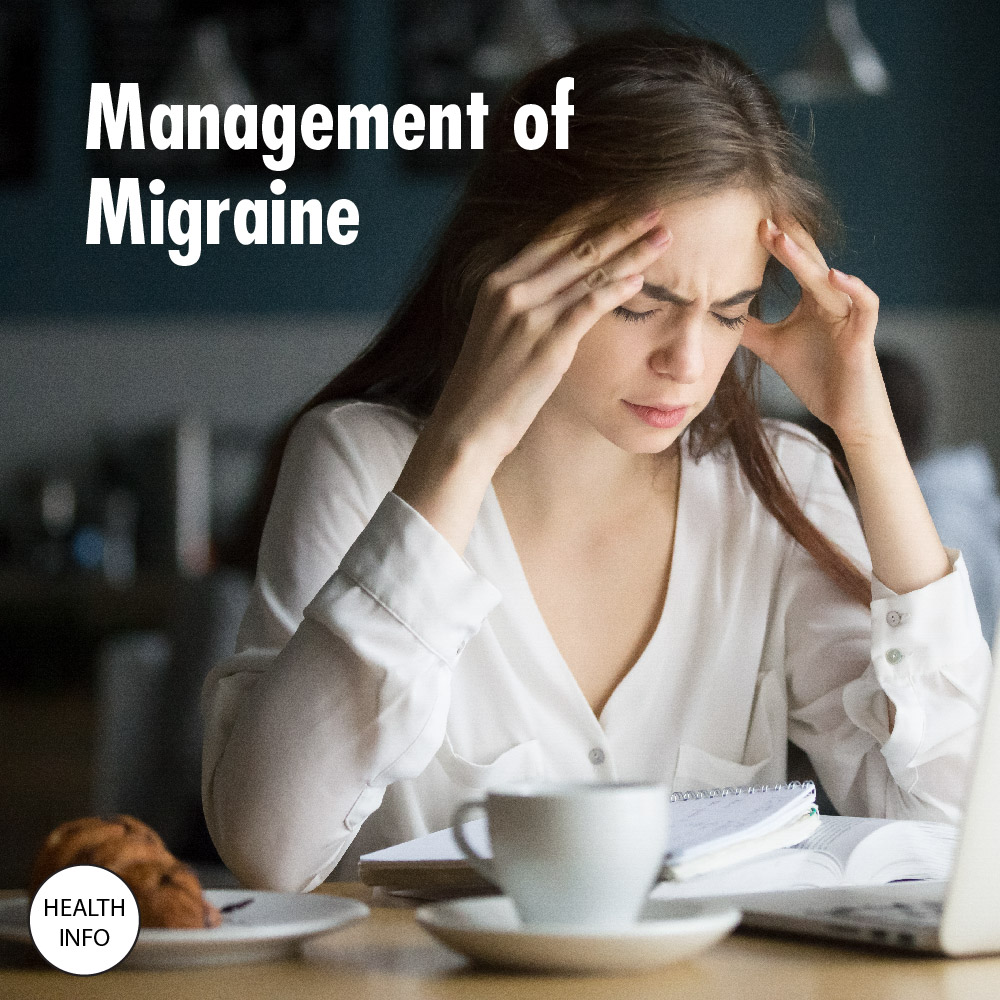
A migraine is a strong headache felt as a throbbing pain on one side of the head. It’s often accompanied by nausea, vomiting, and extreme sensitivity to light and sound1. Migraine attacks can last for hours to days.
Causes of migraines2:
The exact cause of migraines is unknown, genetics and environmental factors appear to play a role. Some people find migraine attacks are associated with certain triggers, including:
- Hormonal changes in women. The fluctuations in estrogen hormone, such as before or during menstrual period, pregnancy and menopause, seem to trigger headaches in many women.
- Stress.
- Certain foods and drinks, such as cheese, alcohol and monosodium glutamate (MSG) .
- Senses such as loud noises, bright lights and strong smells can set off a migraine.
Treatment
Migraine treatment is aimed at stopping symptoms and preventing future attacks. Medications used to combat migraines fall into 2 main categories2:
Pain-relieving medications or known as acute treatment, including:
- Painkillers such as paracetamol and ibuprofen.
- Triptans which are medicines that help block pain pathways in the brain.
- Ergotamine that works on the brain chemicals.
- Anti- emetics that help relieve nausea and sick feeling.
Preventive medications. These types of drugs are taken regularly, to reduce the severity and frequency of migraines.
- Beta blockers and calcium channel blockers, both are medications that are also used in blood pressure or heart problems.
- Antidepressants such as amitriptyline that cause sleepiness.
- Anti- seizure medications such as valproate and topiramate.
During a migraine attack, try heading to a quiet, darkened room and rest. Place a cool cloth on your forehead and drink plenty of fluids to stay hydrated. Keeping a headache diary will help you learn more about what triggers your migraine and hence avoid it. It may also help to maintain a generally healthy lifestyle, including regular exercise, sleep and meals as well as learn to manage stress. Research has found some supplements can help prevent or treat migraines. Vitamin B2 may help reduce oxidative stress associated with migraine3. Besides, coenzyme Q10 that has antioxidant properties may help to treat migraine attacks4. Some studies suggest that coQ10 might reduce the number and length of migraine episodes. Migraine attacks can be debilitating. Effective treatments that are safe and well-tolerated can be extremely helpful for individuals with migraine. Remember to consult your pharmacist or doctor before deciding to take any medication or supplements.
References:
- Eigenbrodt, A.K., Ashina, H., Khan, S. et al. Diagnosis and management of migraine in ten steps. Nat Rev Neurol 17, 501–514 (2021). https://doi.org/10.1038/s41582-021-00509-5
- National Health Service. (2019). Migraine. Retrieved 8 July 2022, from https://www.nhs.uk/conditions/migraine/.
- Marashly ET, Bohlega SA. Riboflavin Has Neuroprotective Potential: Focus on Parkinson’s Disease and Migraine. Front Neurol. 2017 Jul 20;8:333. doi: 10.3389/fneur.2017.00333. PMID: 28775706; PMCID: PMC5517396.
- Sazali S, Badrin S, Norhayati MN, Idris NS. Coenzyme Q10 supplementation for prophylaxis in adult patients with migraine-a meta-analysis. BMJ Open. 2021 Jan 5;11(1):e039358. doi: 10.1136/bmjopen-2020-039358. PMID: 33402403; PMCID: PMC7786797.
Latest Health Info
HPV and You: Why Prevention Matters
What is HPV?Human papillomavirus (HPV) is one of the most common viral infections affecting both men and women. It spreads ...
Gut and Skin: How They Are Related?
Did you know that your gut and skin are connected? The gut-skin axis is the relationship between the microorganisms in ...
Ladies, Let’s Bring Out The Beauty In You
Ladies, Let’s Bring Out The Beauty In You As women juggle the demands of work, family, and personal health, taking ...




